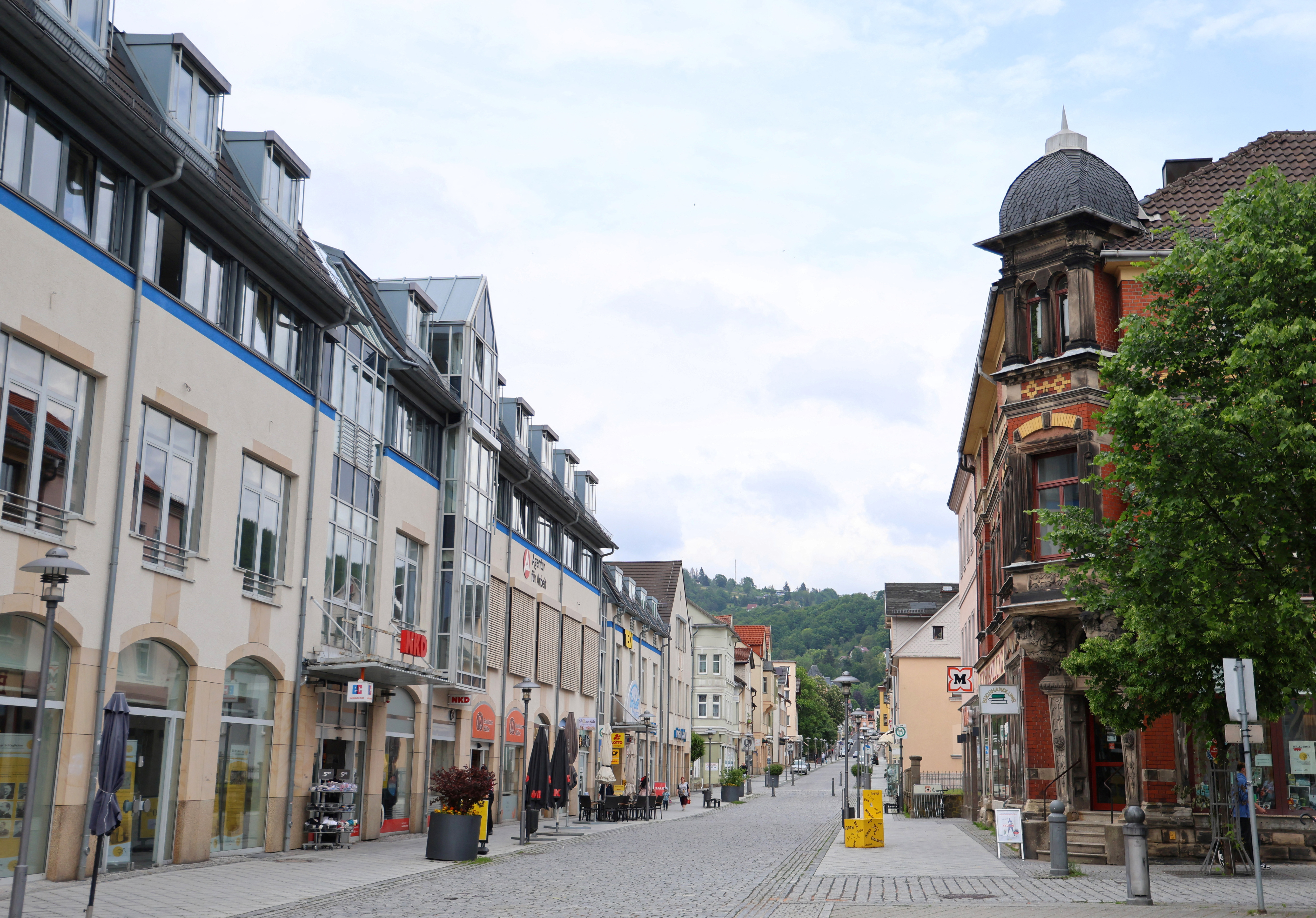https://www.reuters.com/world/europ...-nazi-firewalls-with-success-east-2024-05-31/
Report this ad
Learn more aboutRefinitiv
My News
May 31, 20242:10 PM GMT+2Updated 5 months ago

Item 1 of 5 Sonneberg, Germany, May 21, 2024. REUTERS/Karina Hessland-Wissel
[1/5]Sonneberg, Germany, May 21, 2024. REUTERS/Karina Hessland-Wissel Purchase Licensing Rights, opens new tab
Despite the remarks, recorded in a transcript obtained by Reuters, Schliewe was re-elected to Sonneberg's council on Sunday. The AfD won 26% of the vote across the state of Thuringia, up eight points from 2019.
He got a pledge of continued support from NATO Secretary-General Mark Rutte during a joint press conference, but no endorsement from key allies of his call for an immediate NATO membership invitation.
In neighbouring Hildburghausen, a man who sells merchandise featuring Nazi and Ku Klux Klan motifs won 25% and is now in a run-off to become district administrator.
Such events were for decades unthinkable in a Germany so traumatised by the Nazi era that it installed checks and balances to prevent right-wing extremists ever taking power again.
But with a national election next year, and the AfD polling second at around 16%, it must face the fact that right-wing extremism is now widely accepted in the poorer eastern regions such as Thuringia and changing the shape of politics in west Germany too.
Advertisement · Scroll to continue
Report this ad
Interviews with a dozen local politicians as well as political analysts and a top intelligence official show how the discourse of extremism in Thuringia is being normalised and fomenting anger towards certain groups of society like refugees and climate activists.
The AfD portrays itself as the target of a complacent, self-serving establishment that it stands ready to sweep away.
In its heartland, formerly communist eastern Germany, incomes are lower, mainstream parties are less rooted, and democracy is only three decades old.
Advertisement · Scroll to continue
Report this ad
The party is suspected of "extremism" by the BfV domestic intelligence agency at national level and certified as such in Thuringia.
Its national surge over the past year, helped by a cost-of-living crisis, has been dented only slightly by a string of scandals.
It made gains on Sunday in district and city councils in Thuringia and reached June 9 run-offs for governing posts in nine districts.
"They are incrementally conquering the lower levels, conquering spaces," said political scientist Oliver Lembcke at the University of Bochum. "And this is possible because in some regions now, people feel freer to support the AfD openly."
Far right AfD cracks Germany's post-Nazi firewalls with success in the east
Report this ad
Learn more aboutRefinitiv
My News
Far right AfD cracks Germany's post-Nazi firewalls with success in the east
By Sarah Marsh and Andreas RinkeMay 31, 20242:10 PM GMT+2Updated 5 months ago

Item 1 of 5 Sonneberg, Germany, May 21, 2024. REUTERS/Karina Hessland-Wissel
[1/5]Sonneberg, Germany, May 21, 2024. REUTERS/Karina Hessland-Wissel Purchase Licensing Rights, opens new tab
- Summary
- Companies
- AfD could gain more power in coming local votes
- Party is locally certified as "extremist"
- Security agency says party is normalising extremist ideas
- Strong gains could boost AfD ahead of state, federal elections
Despite the remarks, recorded in a transcript obtained by Reuters, Schliewe was re-elected to Sonneberg's council on Sunday. The AfD won 26% of the vote across the state of Thuringia, up eight points from 2019.
He got a pledge of continued support from NATO Secretary-General Mark Rutte during a joint press conference, but no endorsement from key allies of his call for an immediate NATO membership invitation.
In neighbouring Hildburghausen, a man who sells merchandise featuring Nazi and Ku Klux Klan motifs won 25% and is now in a run-off to become district administrator.
Such events were for decades unthinkable in a Germany so traumatised by the Nazi era that it installed checks and balances to prevent right-wing extremists ever taking power again.
But with a national election next year, and the AfD polling second at around 16%, it must face the fact that right-wing extremism is now widely accepted in the poorer eastern regions such as Thuringia and changing the shape of politics in west Germany too.
Advertisement · Scroll to continue
Report this ad
Interviews with a dozen local politicians as well as political analysts and a top intelligence official show how the discourse of extremism in Thuringia is being normalised and fomenting anger towards certain groups of society like refugees and climate activists.
The AfD portrays itself as the target of a complacent, self-serving establishment that it stands ready to sweep away.
In its heartland, formerly communist eastern Germany, incomes are lower, mainstream parties are less rooted, and democracy is only three decades old.
Advertisement · Scroll to continue
Report this ad
The party is suspected of "extremism" by the BfV domestic intelligence agency at national level and certified as such in Thuringia.
Its national surge over the past year, helped by a cost-of-living crisis, has been dented only slightly by a string of scandals.
It made gains on Sunday in district and city councils in Thuringia and reached June 9 run-offs for governing posts in nine districts.
"They are incrementally conquering the lower levels, conquering spaces," said political scientist Oliver Lembcke at the University of Bochum. "And this is possible because in some regions now, people feel freer to support the AfD openly."

